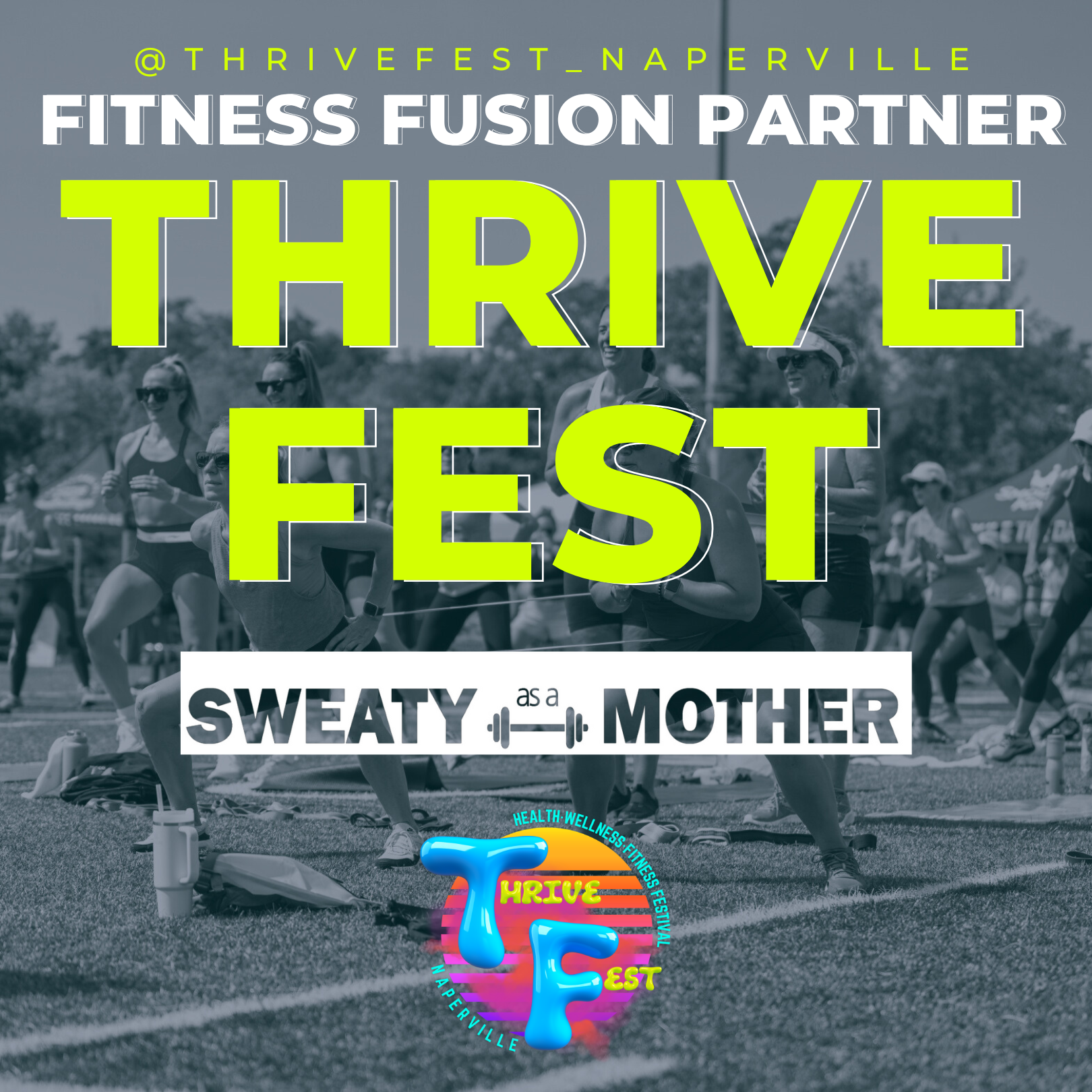The Power of Gratitude: The Key to Health, Happiness and Healing
If you follow me on Instagram and watch my stories, you have heard me and my kiddos reminding you to think about what you’re grateful for everyday. So why do we do this and why do I actively practice gratitude and teach it to my kids?
I like to call gratitude “vitamin G”. taking a daily dose of “vitamin G” is simple and easy to do. For one, it’s free— you just have to learn which ways you want to take it whether it’s by starting a gratitude journal, simply writing a thank you card or taking a gratitude walk. Secondly, gratitude not only has a positive impact on your life, but also those around you and Gratitude is perhaps one of the most important ways to find happiness and success in your life. Knowing what we appreciate most in life, means knowing exactly who we are, what matters to us and what makes each day worthwhile. Especially after becoming a mom, when I am feeling my emptiest, living a life of gratitude helps me come out of those holes and know there is good in everything
Paying attention to what we feel grateful for helps get us in a positive mind set, even after hardships. It connects us to the world around us and to ourselves. Research demonstrates that focusing on what we are grateful for is a universally rewarding way to feel happier and more fulfilled. Of course this does not mean that we ignore our emotions that need to be felt, but it helps us to step back and take a larger perspective on things instead of getting wrapped up in the negative.
The next time you are faced with adversity, I want you to try and ask yourself the following questions:
“What’s good about this?”
“What can I learn from this?”
“How can I benefit from this?”
“Is there something about this situation that I can be grateful for?”
When people think about gratitude they recast negative experiences in a more positive light and experience more positive emotion, which reduces the pain of negative emotions.
Now for my favorite part, we are going to dive a bit into the research on the power of gratitude!
Recently, I had the opportunity to present a speech on gratitude and health to an incredible group at National University and here is a bit of what we talked about and how impactful adding gratitude practices into you and your families lives can be.
How Gratitude Can Improve Our Physical Health
It makes sense that gratitude—an emotion— would positively impact our emotional health. But our physical health too? That’s more surprising!
Improve sleep. Positive emotions like gratitude activate the parasympathetic branch of your nervous system, aka the “relaxation response”, and it has been shown to reduce the time required to fall asleep, increase sleep quality and sleep duration. Can I get an amen?! We are always in need of better sleep.
Make you exercise more often. One of Emmons’ studies (he is the leading researcher on gratitude) showed that people who kept gratitude journals exercised 33% more each week as compared to people who weren’t keeping these journals. A possible explanation is that being grateful for one’s health makes you want to protect it by exercising more. This is one of the main reasons I share gratitude with all of you, because you are worth it, your body is worth it, your mind is worth it!
Reduce pain. Gratitude and other positive emotions may have analgesic effects by stimulating the release of endogenous opioids. They found that people practicing gratitude report fewer aches and pains—they are less sensitive to pain and benefit from greater pain tolerance.
Lower blood pressure. “Negative emotions create a chain reaction in the body—blood vessels constrict, blood pressure rises, and the immune system is weakened. This kind of consistent imbalance can put a strain on the heart and other organs, and eventually lead to serious health problems,” writes Emmons in his book Thanks! Considering that, it’s no wonder gratitude has been shown to lower blood pressure.
Strengthen our immune system. Practice of HeartMath techniques designed to elicit feelings of appreciation and gratitude have been shown to result in a significant increase in levels of immunoglobulin A, a predominant antibody that serves as the body’s first line of defense against viruses. Anything to keep ourselves and our families healthy, especially during cold and flu season.
Lower stress. The same HeartMath techniques have been found to reduce the stress hormone cortisol and increase the hormone DHEA, which reflects a state of physiological relaxation. As Mom’s, we are stressed out often and adding some vitamin G can really have a big impact on lowering our stress to save our bodies.
Help you live longer. Optimism and positive emotions in general have been shown to extend people’s lifespans. Considering that fact and all the health benefits gratitude provides, it’s fair to say that being grateful likely increases life expectancy.
Gratitude Improves Our Emotional Life
Being grateful has been shown to create many emotional benefits.
Make us happier. Gratitude makes us feel good when we experience it. In addition, it helps us notice what is already good in our lives instead of what is bad, which helps us develop positive feelings about ourselves and our life. Research by Robert Emmons and his colleagues has found that gratitude can permanently raise our level of happiness past its genetically determined set-point.
Reduce symptoms of depression. Depressed individuals are known to be overly self-focused (This is not through any fault of their own. And it doesn’t mean they are not compassionate or empathetic. Neither does it mean that they are selfish or self-possessed or anything like that. But they are too focused on their own shortcomings, flaws, etc.). By practicing gratitude, attention is directed away from one’s self and toward others and what they are providing for us.
Increase our resilience. Resilience is our ability to bounce back and recover quickly from setbacks or stressful situations. Grateful people are able to see the bigger picture and remember the positive in their lives, and they seek out more social support. As a result, they are less likely to let bad events pull them into a downward spiral and more likely to grow in times of stress. In other words, gratitude makes us resilient.
Improve our positivity ratio. The positivity ratio is defined as your frequency of positive emotions over any given time span, divided by your frequency of negative emotions over the same time span. P/N. People above a 3-to-1 ratio flourish and create upward spirals for themselves; people below a 1-to-1 ratio perish and create downward spirals for themselves. Gratitude boosts our ratio by helping us experience more positive emotions such as optimism, enthusiasm, love, joy, and happiness, while protecting us from the destructive emotions of envy, greed, bitterness, and resentment.
Improve our self-esteem. Gratitude makes you aware of the good other people do for you. As a result, you feel loved, cared for, and appreciated—which makes you feel better about yourself and improves your self-esteem.
Gratitude Improves Your Social Life
The people around you benefit too, in multiple ways. And because they benefit, so do you.Thinking about being mom’s and the impact this can have on our family is remarkable.
Make you a more understanding, compassionate, helpful, and kind person. “…people who kept gratitude journals reported feeling closer and more connected to others, were more likely to help others, and were actually seen as more helpful by significant others in their social networks,” writes Emmons’ in Thanks! When your cup is overflowing with gratitude and other positive emotions, you are more likely to help others and relieve their suffering. As a Mom, we are constantly in need of these emotions and when we are drained it can be hard to react in a compassionate way, but gratitude can help!
Improve relationships. Gratitude has been shown to improve friendships and romantic relationships. Demonstrating gratitude to friends, partners, or family members makes them feel good, makes us feel good, and makes the relationship better. Communicating gratitude also makes it more likely that we’ll work through problems and concerns, further strengthening and deepening the relationship. This is huge, can you think of a time when you had a fight with a loved one and it ended badly? We always regret the way we react, and adding gratitude can change those outcomes for the better.
Create a positive feedback loop. When we’re grateful, we are more likely to be empathetic, to understand others. This causes others to feel grateful and act that way toward us, and so on. This is certainly one reason why gratitude builds friendships and other social bonds. This goes along with the saying that the energy you put out, is the energy you receive back. So in other words, if you are projecting gratitude toward others, they are more likely to treat us that way and better things tend to happen in our lives.
Gratitude Improves Professional Skills
Whether you are a working mom or a stay at home mom, we all need these types of skills to be the best at what we do!
Improve our decision-making. Grateful physicians are better physicians. This was the conclusion of a study looking at doctors making diagnoses on the basis of a given list of ailments from a hypothetical patient. Doctors who were given a piece of candy prior to this task, thereby inducing a feeling of gratitude, made the right diagnosis more often than doctors in the control group. In short, gratitude improves decision-making.
Increase goal achievement. In one study, people who kept gratitude journals reported more progress on their goals than people in the control group. Far from making you lazy, gratitude may actually do the opposite.
Make us more effective leaders. Gratitude enhances praise-giving, motivating abilities, and other important leadership skills. Due to the contagion of emotions, grateful leaders also infect (literally!) their followers with positive emotions, resulting in performance-enhancing effects across the board.
Make us more creative. In Barbara Fredrickson’s book Positivity, she explains that positive emotions, like gratitude, broaden our minds. Our field of vision literally expands and we see more, both internally and externally. As a result, we come up with more ideas and find more creative solutions to problems. How rad is that?!
Increase our productivity. Gratitude lowers stress, boosts creativity, opens our minds to more possibilities, improves our health, raises our energy levels, reduces negative thoughts, increases self-esteem, and so on. Is it fair to assume that gratitude improves our productivity? I think so! As busy mom’s, this is KEY! We seem to never have enough time and so much on our to-do lists.
So now that you know all of the benefits, how can you start to incorporate gratitude practices into your daily lives?
Five Ways you can Incorporate Gratitude into your Life
1.Take on my 30 day Free gratitude challenge!
A fun way to begin practicing gratitude by completing daily gratitude challenges. I have a calendar you can download as well as journal templates to record how you feel during the process! get started here
2. Gratitude Journal
Each day, either first thing in the morning or before bed, write down five things you are grateful for. It is helpful to be specific. For example: “I am grateful for the ocean waves because they make me feel at peace” and not, “I am grateful the ocean waves.”
3. Write Thank You Notes
It can be a card or an email, just a nice way to thank someone for something they did.
4. Make a habit of Paying Compliments
Make sure that you say something nice to someone every day. It will make you feel better and brighten someone else’s day.
5. Challenge yourself to a No Complaining week
The inverse side of gratitude is complaining, so if we eliminate some of the time we spend complaining, then we free up time to focus on more positive things. Complaining is a default status for way too many of us. Sometimes we do it without even realizing it, and it simply creates a vicious cycle. This may be the hardest one for a lot of people
6. Take a gratitude walk
Take time to get outside and think about all of the things in your life that you are grateful for. It can be the things surrounding you on your walk, the people in your life, etc.
Here are a few things to consider when just starting out:
You may not feel much the first few times you practice gratitude.
You may experience negative emotions (envy, resentment, sadness) during an exercise.
It may feel like a chore at times.
Give it time
Conclusion
The research is there and proves that gratitude can lead to better health, overall job satisfaction, less burnout and helps us heal (post-traumatic growth)
When you face challenges or setbacks use gratitude as a coping strategy to keep the mindset. Might not feel grateful immediately and it doesn’t mean ignoring emotions , but helps you to step back and have a larger perspective.
So how will you start to practice gratitude?
How to instill this to your kids and teach them how to think gratefully?
Be a model of gratitude!
SOURCES
Portland State University. (2019, March 13). The power of gratitude in the workplace. ScienceDaily. Retrieved August 12, 2019 from www.sciencedaily.com/releases/2019/03/190313091929.htm
Beyond Reciprocity: Gratitude and Relationships in Everyday Life Sara B. Algoe, Jonathan Haidt, and Shelly L. Gable
Happiness (McCullough et al., 2002) (Watkins et al., 2003)
(Lambert, Fincham, & Stillman, 2012).
Death and gratitude: Death reflection enhances gratitude Araceli Friasa, Philip C. Watkinsa*, Amy C. Webbera and Jeffrey J. Frohb Department of Psychology, Eastern Washington University, 151 Martin Hall, Cheney 99003, WA, USA; b Department of Psychology, Hofstra University, 210 Houser Hall, Hempstead 11549, NY, USA
Digdon, N., & Koble, A. (2011). Effects of Constructive Worry, Imagery Distraction, and Gratitude Interventions on Sleep Quality: A Pilot Trial. Applied Psychology: Health and Well-Being, 3(2), 193-206.
Emmons, R. A., & Mccullough, M. E. (2003). Counting blessings versus burdens: An experimental investigation of gratitude and subjective well-being in daily life. Journal of Personality and Social Psychology, 84(2), 377-389.
















2025 Shop small gift ideas!